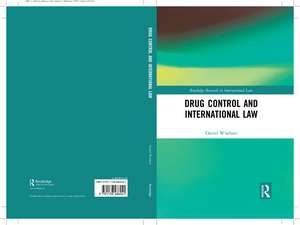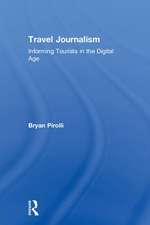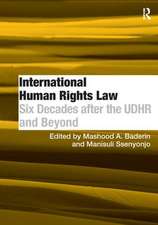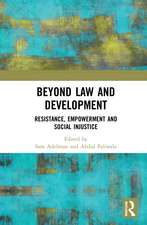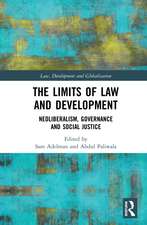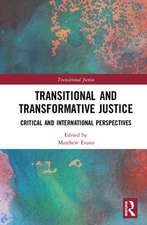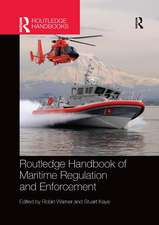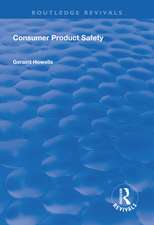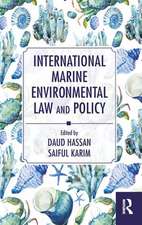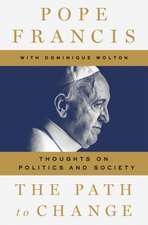Drug Control and International Law: Routledge Research in International Law
Autor Daniel Wiseharten Limba Engleză Paperback – 30 iun 2020
The objective of the current global framework of international drug control is the limitation of drugs to medical and scientific purposes. The meaning of this objective and its concrete implications for States’ parties as well as its problems from the perspective of other regimes of international law, most notably international human rights law, are extensively analysed. Additionally, the book focuses on how the international drug control system attempts to reach the objective of confining drugs to medical and scientific purposes, i.e. by setting up a universal system that exercises a rigid control on drug supply. The consequences of this heavy focus on the reduction of drug supply are outlined, and the book concludes by making suggestions on how the international drug control system could be reformed in the near future in order to better meet the existing challenges.
The analysis occurs from a general international law perspective. It aims to map the international drug control system within a wider context of international law and to understand whether the problems that the international drug control system faces are exemplary for the difficulties that institutionalized systems of global scope face in the twenty-first century.
| Toate formatele și edițiile | Preț | Express |
|---|---|---|
| Paperback (1) | 385.25 lei 6-8 săpt. | |
| Taylor & Francis – 30 iun 2020 | 385.25 lei 6-8 săpt. | |
| Hardback (1) | 1001.07 lei 6-8 săpt. | |
| Taylor & Francis – 5 oct 2018 | 1001.07 lei 6-8 săpt. |
Din seria Routledge Research in International Law
-
 Preț: 296.43 lei
Preț: 296.43 lei -
 Preț: 151.73 lei
Preț: 151.73 lei -
 Preț: 311.94 lei
Preț: 311.94 lei -
 Preț: 311.70 lei
Preț: 311.70 lei - 8%
 Preț: 375.14 lei
Preț: 375.14 lei -
 Preț: 281.27 lei
Preț: 281.27 lei - 18%
 Preț: 1053.16 lei
Preț: 1053.16 lei -
 Preț: 484.47 lei
Preț: 484.47 lei -
 Preț: 282.62 lei
Preț: 282.62 lei -
 Preț: 410.50 lei
Preț: 410.50 lei - 18%
 Preț: 1054.75 lei
Preț: 1054.75 lei - 18%
 Preț: 727.38 lei
Preț: 727.38 lei -
 Preț: 422.04 lei
Preț: 422.04 lei - 18%
 Preț: 1054.71 lei
Preț: 1054.71 lei - 18%
 Preț: 1074.44 lei
Preț: 1074.44 lei - 18%
 Preț: 1059.48 lei
Preț: 1059.48 lei - 18%
 Preț: 1060.52 lei
Preț: 1060.52 lei - 18%
 Preț: 1058.43 lei
Preț: 1058.43 lei -
 Preț: 452.27 lei
Preț: 452.27 lei -
 Preț: 451.41 lei
Preț: 451.41 lei -
 Preț: 419.11 lei
Preț: 419.11 lei - 28%
 Preț: 822.34 lei
Preț: 822.34 lei -
 Preț: 494.07 lei
Preț: 494.07 lei - 18%
 Preț: 1118.46 lei
Preț: 1118.46 lei -
 Preț: 491.60 lei
Preț: 491.60 lei -
 Preț: 490.25 lei
Preț: 490.25 lei - 18%
 Preț: 1178.15 lei
Preț: 1178.15 lei -
 Preț: 444.62 lei
Preț: 444.62 lei - 18%
 Preț: 1050.78 lei
Preț: 1050.78 lei -
 Preț: 454.22 lei
Preț: 454.22 lei - 14%
 Preț: 301.05 lei
Preț: 301.05 lei -
 Preț: 419.32 lei
Preț: 419.32 lei - 18%
 Preț: 1052.38 lei
Preț: 1052.38 lei - 18%
 Preț: 1111.87 lei
Preț: 1111.87 lei - 18%
 Preț: 1112.34 lei
Preț: 1112.34 lei - 15%
 Preț: 550.99 lei
Preț: 550.99 lei - 18%
 Preț: 1054.71 lei
Preț: 1054.71 lei -
 Preț: 422.91 lei
Preț: 422.91 lei -
 Preț: 286.51 lei
Preț: 286.51 lei - 18%
 Preț: 1117.88 lei
Preț: 1117.88 lei
Preț: 385.25 lei
Nou
Puncte Express: 578
Preț estimativ în valută:
73.73€ • 76.69$ • 60.87£
73.73€ • 76.69$ • 60.87£
Carte tipărită la comandă
Livrare economică 14-28 aprilie
Preluare comenzi: 021 569.72.76
Specificații
ISBN-13: 9780367584993
ISBN-10: 0367584999
Pagini: 244
Dimensiuni: 156 x 234 x 13 mm
Greutate: 0.35 kg
Ediția:1
Editura: Taylor & Francis
Colecția Routledge
Seria Routledge Research in International Law
Locul publicării:Oxford, United Kingdom
ISBN-10: 0367584999
Pagini: 244
Dimensiuni: 156 x 234 x 13 mm
Greutate: 0.35 kg
Ediția:1
Editura: Taylor & Francis
Colecția Routledge
Seria Routledge Research in International Law
Locul publicării:Oxford, United Kingdom
Public țintă
PostgraduateCuprins
Acknowledgments
List of abbreviations
1 Introduction
2 The sources and actors of the international drug control system
3 The emergence of the international drug control system
4 The objective of the international drug control system: limitation of drugs to medical and scientific purposes
5 The material scope of the international drug control system
6 Challenges to the implementation of the international drug control system
7 Concluding remarks and outlook
Bibliography
Index
List of abbreviations
1 Introduction
1.1 International drug control after UNGASS 2016: more of the same or towards a fundamental turning point?
1.2 Objectives and methodology of this book
2 The sources and actors of the international drug control system
2.1 The primary sources of the international drug control system
2.2 The institutions of the international drug control system and a typology of their secondary instruments
2.3 Conclusion
3 The emergence of the international drug control system
3.1 Towards one coherent obligation to confine drugs to medical and scientific purposes
3.2 A constant expansion of the international drug control system
3.3 The international drug control system as a prime example of the law of cooperation
3.4 Conclusion
4 The objective of the international drug control system: limitation of drugs to medical and scientific purposes
4.1 The need to understand the limitation of drugs to medical and scientific purposes
4.2 The meaning of the limitation of all drug-related activities to medical and scientific purposes
4.3 Exceptions to the limitation of drugs to medical and scientific purposes within the international drug control system
4.4 Options to deviate from the limitation of drugs to medical and scientific purposes in the international drug control system
4.5 Does international human rights law conflict with the limitation of drugs to medical and scientific purposes?
4.6 Conclusion
5 The material scope of the international drug control system
5.1 Substances limited to medical and scientific purposes
5.2 Modification of the scope of application of the international drug control system (scheduling)
5.3 Prospects for exempting cannabis and the coca leaf from drug control’s scope of application
5.4 The challenge of regulating uncertainty: the rise of new psychoactive substances and the international drug control system
5.5 Conclusion
6 Challenges to the implementation of the international drug control system
6.1 Control of the licit supply chain: achieving a balance between limiting and ensuring an adequate availability of drug supply?
6.2 Suppression of illicit supply: the UN Drug Conventions as a punitive and sanction-oriented system of control?
6.3 Demand-reduction obligations providing for a human- and health-oriented treatment of drug users?
6.4 Fairness and the premise of the international drug control system to limit drugs to medical and scientific purposes by relying on a control of drug supply
6.5 Conclusion
7 Concluding remarks and outlook
Bibliography
Index
Notă biografică
Daniel Wisehart is an associate at Wach + Meckes LLP, Munich. He has previously worked as a researcher at the Universität Potsdam and the Universität Freiburg and clerked for the European Court of Human Rights.
Descriere
The book provides for an extensive legal analysis of the international drug control system in the light of growing challenges and criticism that this system faces. It provides an in-depth and positivist insight into drug control’s present legal framework.
